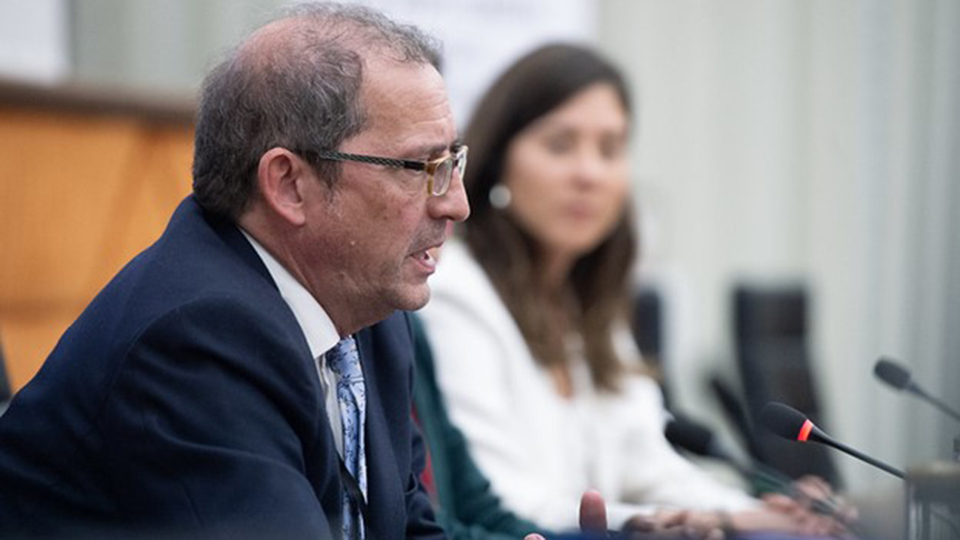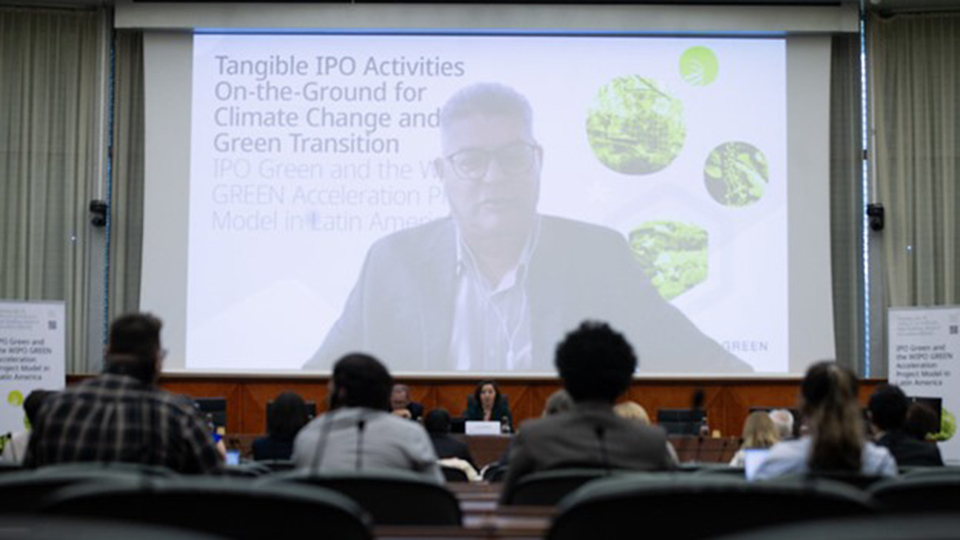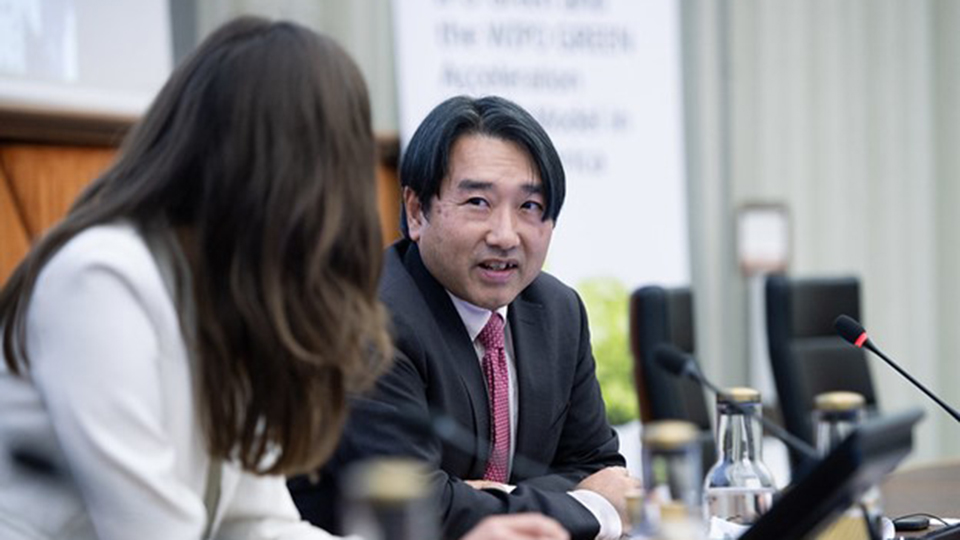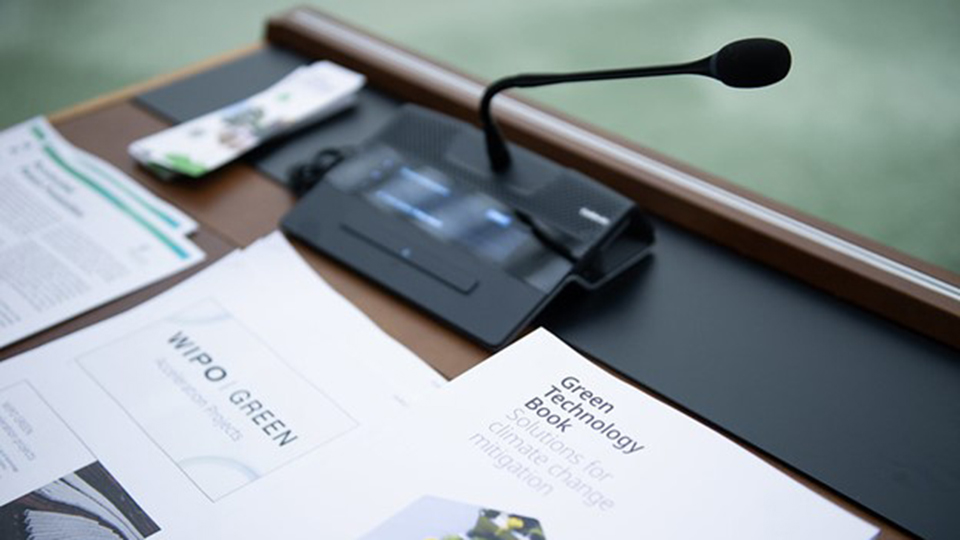

July 22, 2024
At the margins of the WIPO Sixty-Fifth Series of Meetings of the Assemblies of the Member States, WIPO GREEN brought together high-level representatives from Argentina, Brazil, Chile, and Peru to discuss how their Intellectual Property (IP) offices are leveraging WIPO’s initiatives to promote climate-smart agriculture and catalyze green innovation ecosystems through WIPO GREEN’s Acceleration Projects and IPO GREEN, respectively.
The event, titled “IPO Green and the WIPO GREEN Acceleration Project Model in Latin America”, opened with welcoming remarks by Peter Oksen, Green Technology and Research Manager, Climate Change and Food Security Unit, WIPO.
“We are very happy to hear from the Heads of the IP offices and learn from their invaluable experiences. Their insights will undoubtedly inspire and guide us as we continue to support and expand green innovation ecosystems globally”, he said.
High-level representatives from the participating IP offices emphasized the important role that IP plays in promoting green technologies and discussed the benefits of WIPO GREEN Acceleration Projects in the countries.

Alberto Villanueva Eslava, Executive President of Peru’s National Institute for the Defense of Free Competition and the Protection of Intellectual Property (Indecopi), championed the role of IP offices in fostering green technology development. Loreto Bresky, Director of Chile’s National Institute of Industrial Property (INAPI), highlighted how IP offices can contribute to broader industrial policies focused on green technologies. Júlio César Moreira, President of the Brazilian National Institute of Industrial Property (INPI), underscored the importance IP in promoting sustainability and protecting biodiversity in Brazil. Carlos María Gallo, President of Argentina’s INPI, emphasized the role that WIPO GREEN played to enhanced inter-agency collaboration in responding to climate change issues. He also noted that the project provided important contributions to mobilizing IP, innovation and technology for combating environmental challenges in Argentina’s large agricultural sector.

Denisse Fierro, International Affairs Manager, INAPI (Chile), stressed the importance of IP offices in fostering technological innovation and harnessing IP assets to respond to climate change issues. Erica Leite, Head of Multilateral Relations at INPI (Brazil), discussed how the IP office in Brazil supports protecting biodiversity and fostering sustainable economic development through IP, including through the recently established Sustainability and Bioeconomy Commission. Nelson Cruz Tapia, Analyst, Indecopi (Peru), emphasized his office’s priority to increase the use of IP services to, amongst other things, promote the agricultural sector at a national level. He also emphasized the important role of the WIPO GREEN database.
Success stories from the regional WIPO GREEN Acceleration Project were shared. Speakers highlighted how the project facilitated the transfer of essential green technologies, such as improved soil management practices and water-saving irrigation systems. These advancements have demonstrably contributed to building a more sustainable agricultural sector in the region.
The panel also discussed the “IPO Green” initiative, a program established by WIPO GREEN to encourage collaboration and knowledge exchange among IP offices globally. Representatives from Argentina, Brazil, Chile, and Peru explored how this model could be further enhanced to empower IP offices become active players in green innovation ecosystems.

Kunihiko Fushimi, Director, Cooperation Support Section, WIPO, presented the donor perspective of the WIPO GREEN Acceleration Projects and IPO GREEN. He noted the important role of IP as a management resource, highlighting its potential for protecting innovations, safeguarding business interests, facilitating collaboration, and addressing social issues like climate change. Funds-in-Trust Japan, which is managed by the Japan Patent Office, supports both projects. He further noted that WIPO GREEN contributes actively to achieving sustainable development goals.
Peter Oksen highlighted that IP forms the basis of the innovation ecosystem. He also introduced the WIPO GREEN database as well as WIPO’s Green Technology Books on adaptation and mitigation.

The panel emphasized on the importance of collaboration to pave the way for further international partnerships and the development of innovative strategies for tackling climate change through IP. Through the discussions, the panel highlighted how IP offices are supporting the green transition in collaboration with WIPO GREEN. It also provided an opportunity to bring together stakeholders, create connections, contribute to new partnerships with other Member States.
Discussions were moderated by Sabrina Herzog, Project Manager and Partner Engagement, Climate Change and Food Security Unit, WIPO.
IPO GREEN is an initiative that supports IP Offices to enact green policies and programs. Launched in 2022 with funding from the Japan Patent Office, the initiative brings IP Offices together to share their experiences and insights. It also provides research and analysis about IP Offices’ activities that help to stimulate the development and deployment of new green technology solutions.
WIPO GREEN Acceleration Projects are matchmaking projects that focus on a particular geographical area and technological domain, where technology providers and seekers make crucial connections that can lead to green tech deployment or transfer. The WIPO GREEN climate-smart agriculture project aims to mobilize innovative new technologies in the region and to facilitate tangible links between entities, looking for green solutions and potential technology providers. This project is supported by Funds-in-Trust Japan Industrial Property Global.
Funds-In-Trust Japan Industrial Property Global (FIT/Japan IP Global) supports developing and least developed countries (LDCs) to improve their knowledge of IP systems and enhance their IP capabilities to facilitate innovation and technology transfer worldwide.